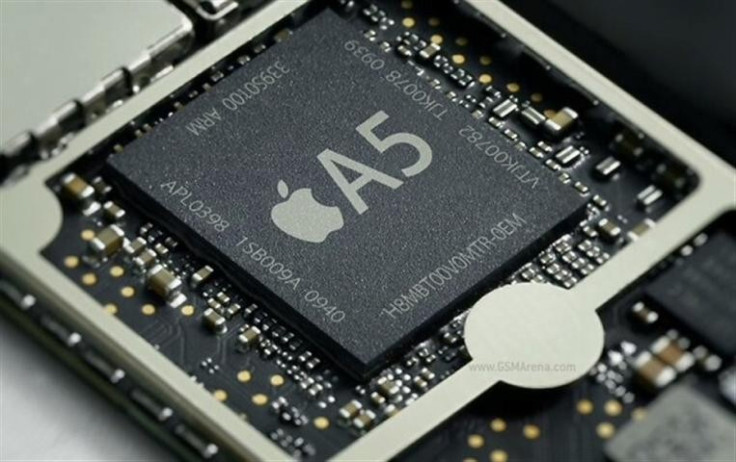Apple shuns Samsung; Taiwan's TSMC to supply A6 chips

Samsung's soured relationship with Apple received another blow as a new report suggests that the Cupertino-based company will not source its upcoming A6 SoC from its Korean supplier.
Ars Technica citing numerous sources inside the semiconductor industry stated that Apple will bypass Samsung and hand over the order to manufacture the next version of ARM SoC codenamed A6 to Taiwan SemiConductor Manufacturing Company (TSMC) in 2012.
The current version of Apple's A5 chip which powers its iPad 2 is manufactured by Samsung, which also produces the A4 line of processors found in iPhone 4 and the original iPad.
The next generation A6 SoC will be crafted on a 28nm process. The current A5 chip is built on a 45nm process.
DigiTimes had first reported that Apple would outsource the production of A4 and A5 chips from TSMC. However, the rumor was trashed as later reports emerged which confirmed that Samsung was manufacturing Apple's A5 SoC.
The current report that Apple is cozying up with TSMC gains credence as the Cupertino-giant is embroiled in a lawsuit with Samsung. Apple amended its earlier version of a patent lawsuit it had filed against Samsung in April. In the amended version, Apple charged Samsung of slavishly copying Apple's designs. Apple also termed Samsung as the boldest of all competitors in terms of replicating its designs.
While the lawsuit resulted in a failed attempt by both the companies to get a preview of each other's upcoming devices, the legal proceedings have certainly dented their buyer-supplier relationship.
In February, WSJ reported that Apple had placed a $7.8 billion order with Samsung for key components used in hand-held devices. The order consisted of liquid crystal displays, processors and NAND flash memory.
Also Korea Times reported in January that Samsung had signed an agreement with Apple to quadruple production of processors. It was also reported that Samsung was investing $3.6 billion to expand its fabrication plant in Austin, Texas.
However, the subsequent launch of Samsung Galaxy Tab 10.1 after Apple released its thinner iPad 2 model dampened relations between the two. Samsung had first showcased its Samsung Galaxy Tab 10.1 in February - it was then touted to be 0.44 inches thin. However, when Apple released its iPad 2, the Korean company's vice president Lee Don-joo had said: Apple made it very thin. Samsung delayed the launch of Galaxy Tab 10.1 and released a thinner version of Galaxy Tab 10.1, measuring 0.33-inch thin and weighing 1.31 pounds in the same month after Apple released the iPad 2 on March 2.
Apple has cited many other products from the Samsung stable in its lawsuit which include products like Droid Charge, Galaxy Ace, Galaxy Prevail, Galaxy S (i9000), Gravity, Infuse 4G, Nexus S 4G, Replenish, Sidekick, Galaxy Tab 10.1, and Galaxy S II.
The strained relationship between the two could also be the reason why the next iPad, the iPad 3, may not have an AMOLED screen, as Samsung produces a major portion of the AMOLED global supply. Thus, Apple would not like to entirely depend on Samsung to supply its AMOLED screens.
The fight is a gain for other suppliers as Apple may possibly hive off supply orders for other critical components from Samsung.
READ: Apple iPhone 5 release date, secret models and more surprises
Apple iPhone 5 and mid range iPhone 4S see September launch date
© Copyright IBTimes 2024. All rights reserved.





















